Cheers to Dramaland 2013 [Year in Review, Part 1]
by javabeans
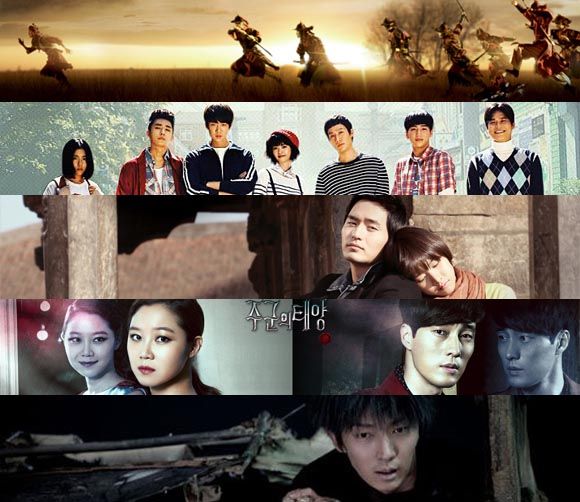
Another year has flown by, and it’s time to look back, reminisce, and assess how 2013 treated us in dramaland. And in taking a trip down memory lane (sure it’s a short lane, but so’s the memory), it strikes me that 2013 was pretty good in churning out a steady diet of watchable dramas, but a little stingy on the standouts. Which is to say, there were many, many dramas I enjoyed (including some that were so flawed that there was no reason to have enjoyed them as much as I did), but few if any that I really loved.
In my very unscientific approach to judging a year in dramaland, I generally feel that if a year brings me at least one awesome drama that gets me in both the head and the heart, it’s been a satisfying year. By that criteria, I’ll have to say 2013 falls a bit short of drama excellence, because I missed having that mind-and-body absorption into a drama and its world. Yet there were enough solid offerings to keep me well entertained, so I can’t be too disappointed.
And yes, there were some stinkers too, but that’s what man invented liquor for. So grab a drink, raise your glass, and join me in looking back on the year that was. (If you don’t see your favorite drama in this review, there’s a good chance it’ll be covered in the upcoming reviews. We’ve done our best to cover as much as possible, we swears. We have the dark circles to prove it.)
SONG OF THE DAY
Suspicious Housekeeper OST – “First Love” sung by Kim So-hyun [ Download ]
Audio clip: Adobe Flash Player (version 9 or above) is required to play this audio clip. Download the latest version here. You also need to have JavaScript enabled in your browser.
So. What’s your poison?
CELEBRATORY DRINKIN’
Nine: Nine Time Travels
Raise your glass of: Single malt scotch. Complex, layered, and a little bracing.
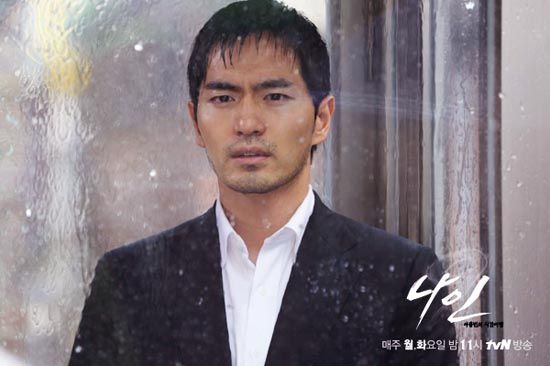
Hands down, Nine is dramaland’s best take on the time-travel premise (and we have had many to compare against). But more than being head and shoulders above the other Korean time-travelers, I’d argue that Nine, with its intricate and intelligent handling, is one of the best onscreen explorations of time travel, period.
Where other dramas often relegate the time travel element to role of narrative tool—a reason to kick off a romance, for instance, or pluck our fish out of water—Nine put the time travel front and center and built a complex mythology with rules, complications, and consequences fully thought out. Sharp and smart, the plot kept the gears in our brains turning and our worry meters dialed up to ten at the hero’s ever-tangling predicaments, making for a suspenseful and often unpredictable watch.
While there are dramas that try to outsmart audiences as a gimmick (withholding info or deliberately being contrary), Nine outsmarted us just by being inherently smart. And the show assumed I was smart, too, never talking down to its audience. The details were laid in thoughtfully, but it wasn’t so caught up in its own cleverness that it became incomprehensible to the average viewer, which is something that shows like Lost couldn’t always manage. Nine provided a good balance between an accessible story and a complex framework holding it up, so that it could be enjoyed on multiple levels.
It wasn’t a flawless show (though it’s still on a shortlist of the year’s best-executed), and neither was it very fast; even when the story picked up steam, it didn’t actually move very quickly—the relationships played out in somewhat leisurely fashion. It’s to the drama’s credit that every development was wrought with intrigue despite that; sometimes the fallout was more interesting than the conflict itself. The drama wasted nothing on filler, giving us lean, economical storytelling with tight internal logic.
I came away from Nine with admiration for its intellectual streak and awe at the deftness of its directing, which kept me happily engaged on a mental level and on the edge of my seat through all the unexpected twists and turns. And while I’d classify it more as a cerebral treat than a gooey emotional one, that doesn’t mean it was without emotion; it was, however, refreshing for the brain to get as much a workout as the heart.
Master’s Sun
Raise your glass of: Makgulli. Sweet, fizzy, comforting.
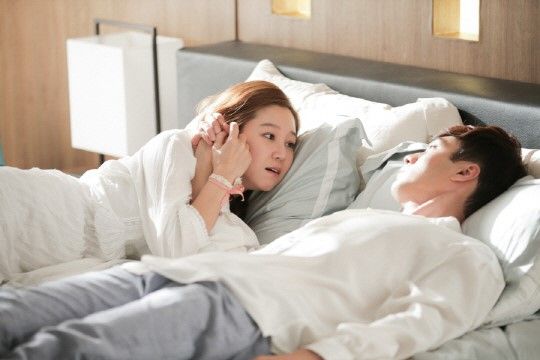
Perhaps Master’s Sun wasn’t the Hong Sisters at the pinnacle of their writing game, but they have bounced back from recent missteps and toned down some of their excesses, which made this series a solid return to form. Past dramas have showcased the Hongs’ tendency to take their wordplay and jokes a beat too far; in Master’s Sun, they showed a restraint we’d not seen before. Sometimes a joke can be just a joke, and they finally got the memo, toning down that frantic impulse to turn everything a metaphor, and then make all those metaphors collide into a supernova of tongue-twisting semantic gymnastics.
While the drama didn’t have quite the fast-flying dialogue or addictive punch of their past shows, it drew me in with its slower burn and the fantastic chemistry between Gong Hyo-jin (so relatable and winsome) and So Ji-sub (hilarious and absurd, but played with a thread of longing that was just lovely to see). Thus while Master’s Sun employed a more sedate pace, it offered a nice change from the breakneck speed of past dramas—I got to enjoy moments a little longer before zipping along to the next joke. Not to mention: Skinship as a legitimate plot device? Who knew! (Also, this must become A Thing.)
The ghosts of the week could be hit or miss, and the drama was the better for dropping the episodic ghost cases once the central loveline was in full swing. For instance, the hero being haunted (literally) by a past love was a key point of his character, but the drama tended to slow when his ghost backstory stepped to the fore, marking one of the show’s less successful handlings.
Not that ghosts on their own were a detractor. I loved that ghost-seeing was an intrinsic part of who our heroine was, so the conflict went deeper than “Make ghosts go bye-bye.” Was there a way to live without being forever haunted, and if not, could she be her own person anyway? And while the hero’s hot, hot body conveniently provided a safe haven from her unwanted gift, it was at best a stopgap measure, a band-aid to deal with the problem right now without fixing the source of the issue. So agency and identity were very much tied into the paranormal conceit, which makes one of the year’s more thoughtful and complex explorations of an otherworldly device.
Two Weeks
Raise your glass of: Soju, preferably in shot form. To take the edge off the nail-biting.
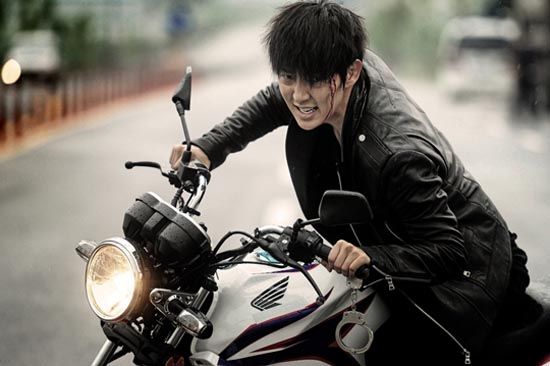
Two Weeks marks the second year in a row that Lee Jun-ki put in a strong performance in a solid show that nevertheless didn’t quite garner the popularity it deserved. The condensed-time thriller wasn’t a flop—it had a modest fanbase and drew mostly positive responses—but felt underrated anyway, considering how well-written its thriller plotline was and how strongly it kept up its brisk pace.
Careful plotting was one of Two Weeks’ greatest assets, because it doled out its story in a consistent series of payoffs and setbacks, testament to a well-planned plot. The live-shoot never betrayed the drama’s narrative integrity, and we never felt like the drama was scrambling to pull twists out of a hat; the twists were set in place from the outset, which is probably why I never feared that the show was about to take an obvious dive in quality, no matter how tight the shooting schedule became.
I have to give Two Weeks serious props for daring to make its hero genuinely unpalatable at its outset, which was ballsy—going too far could endanger our inclination to root for him. On the flipside, holding back would have shortchanged his redemption arc, which in turn would’ve defanged his gratifying turnaround. We didn’t merely want to see a guy clearing his name after being beaten by the system; we wanted to see him change and become the better man in the process, and Tae-san earned every bit of his redemption. The show took care to explain his bad behavior, but to its credit the hero didn’t shy away from taking responsibility for his actions, regardless of whatever extenuating circumstances led him to them.
Two Weeks also succeeded in making the hero’s flight from justice feel harrowing, and there were moments I had no idea how Tae-san was going to get himself out of his fix. The writing deserves credit for maintaining a relentless pace that made us feel like we were on the run with the hero, frantically thinking up desperate schemes to save our skin along with his. Perhaps it’s because he was no brainy genius who could easily outmaneuver his chasers that his victories felt so triumphant, and we saw the spark in his eyes flickering back to life after lying dormant for so long. After wallowing for years in defeat and purposelessness, our hero plugged into his own life in his lowest moment, and I couldn’t NOT root for a guy who’d finally figured out that life is worth fighting for. Would that we all knew that secret.
Mandate of Heaven
Raise your glass of: Long Island Iced Tea. So many shots of different things. But tasty!
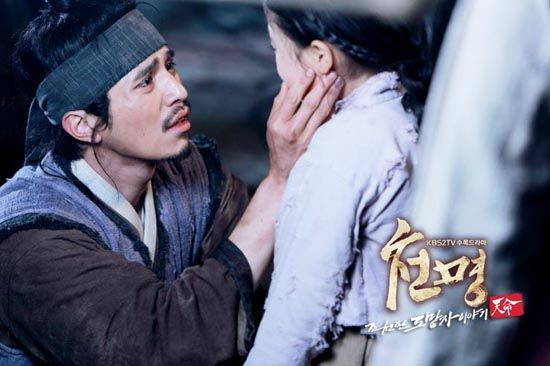
I have a lot of warm thoughts for Mandate of Heaven, which was an example of a fusion sageuk that knew when to draw upon real historical facts to enhance the story it wanted to tell, without going to either extreme of being shackled to historical record or disregarding it willy-nilly. The drama set its characters in a political conflict that is fairly well-known, then layered on its own interpretations; thus it didn’t greatly diverge with what we knew about this slice of history, but still did the work of fleshing out the characters’ motivations and conflicts.
Though the one-sentence logline is nearly identical to that of Two Weeks, the two shows are distinct entities, and not just because one takes place in contemporary times and the other in the Joseon era. Mandate of Heaven was the warmer, friendlier version of the framed-fugitive story (Two Weeks was the darker, suspenseful one), allowing its beleaguered hero refuge in a growing circle of allies to back him in his desperate plan to clear his name. Not only did those side characters provide a much-needed dose of levity amidst all the court intrigue and coup plots, they became a highlight of the show and often even outshined the hero.
It’s a shame that the lead actor (Lee Dong-wook) ended up being the show’s weakest link, and he fell flat pretty spectacularly. It didn’t help that he lacked any sort of spark with his love interest (Song Ji-hyo), the two of whom were morally upstanding people with righteous hearts who made for boring television. Thankfully the love story wasn’t the focus; the driving force was always the father-daughter love story, and there the connection held strong. It’s a lucky thing that the drama also had a steady stream of engaging personalities on the side, ready to add charisma and humor to the proceedings. (A few standouts: Song Jong-ho as the fugitive-chaser-turned-ally, Im Seul-ong as the lonely prince, Kwon Hyun-sang as the devoted bandit leader.)
Mandate of Heaven was one of the prettier dramas of the year, thanks to that gorgeous camera, and with its steady escalation of conflict, the show mixed humor with thrills and intrigue in a skillful combination. It didn’t reinvent the wheel, but it kept it moving with dexterity.
Answer Me 1994
Raise your glass of: Egg nog. Hearty and substantial. A little much.
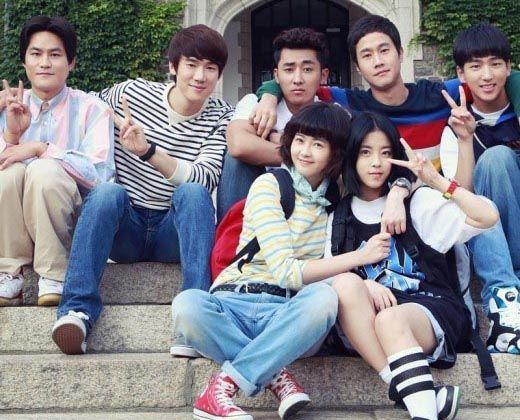
I’m in a strange place with this show, which is a few weeks shy of its wrap-up, which makes an overall review difficult to write as I’ve yet to come to terms with how I feel about it all. (And likely will not have a fully formed conclusion until it actually ends.) The experience of watching Answer Me 1994 has been a bit of a roller coaster, because while I very much love many aspects about the show, I also have significant dissatisfactions with it. Answer Me 1994 is like a prime cut of meat, cooked to perfection, making your mouth water—and then you bite in and get a mouthful of fat. You’ve gotta trim that sucker, chef! Otherwise it doesn’t matter how awesome the rest is, because the excess is getting in the way.
After the massive success of Answer Me 1997 last year, which snuck up on everybody to become a sleeper hit, going into this series my question was whether it would retain the witty writing and heart-feels of the first drama, and if so, how it would set itself apart. And despite a few jarring moments early on where 1994 did feel rather familiar (repeat castings, reuse of the same sound effects, the same flashback structure and “Who’s the husband?” mystery), it did succeed in creating its own distinct characters and a world that felt every bit as real as the 1997 world.
I’d argue that 1994 beats 1997 in emotional warmth and lovable characters (especially the supporting ones), which is probably why I was drawn to this story more than I had been last year. However, I will say that it has been the less satisfying watch for me, in story and overall execution. Apart from the meandering episodes that take forever to get to the point, 1994 commits a fatal flaw: It lacks follow-through. Scenes are routinely built up to a climax, only to zoom forward weeks or months, thus depriving us of the fall-out or reaction and bypassing huge narrative moments. I suspect this is at least partly to preserve the husband mystery, but it cheats us of developments that are frankly pretty vital.
So while 1997 never had my heart, 1994 did—which it jerked around too much until my feelings went sour. I’m not sure which is better. It says a lot that even with several large gripes, I still come away from this drama loving all the characters, who feel fleshed out and real, like people whose lives we get to peek into rather than fictional creations of actors and writers.
Go Ara hasn’t been known for her strong acting in the past, but she also hasn’t been this good before—she pours herself into Na-jung with commitment, wearing her character’s emotions on her sleeve like they’re her own. Secondary characters are all distinct and endearing, and the love triangle has been so effective as to cause wars among fans, which is (glass half full!) at least proof of its efficacy. Not that I blame either ship’s side for being so devoted, as both Jung Woo and Yoo Yeon-seok are earning every bit of the love being sent their way for their sensitive, nuanced interpretations of their characters. The drama ends in a couple weeks, and in addition to hoping we all survive the husband wars, I’m crossing my fingers that the show gets back on track with what it does best, which is not about sending us sly winks about a mystery, but all about depicting their characters with thoughtfulness and care.
I Hear Your Voice
Raise your glass of: Bloody Mary. Spicy and salty with a kick.
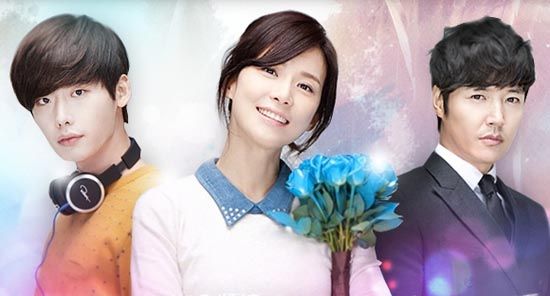
Although the main character of I Hear Your Voice is presumably the hero who can hear your voice, for me this show was really all about Lee Bo-young. Not to sell Lee Jong-seok short, who was no slouch as the stubborn, strong-willed young man with the unwavering sense of justice—it’s just that the heroine was the one who breathed life into the show with her strong personality, hilarious sardonic attitude, and dramatic trajectory.
I love that the heroine was allowed to be a bratty, snarky woman who was in no way held up to (and constrained by) traditional drama characterizations of ideal femininity. She got to be delightfully bitchy and jaded and wasn’t painted as a terrible person for it; it was just one facet of her personality, just as it was part of her personality to be a monster slob and careless cook. She was refreshing and awesome, and dramaland could really use more characters like her, as well as more relationships like the one between her and her childhood antagonist. Their grown-up rivalry became something much more meaningful than the standard expected clash between bitchy females, and I was thrilled that for once a relationship between two strong-headed women at professional odds with each other was still portrayed in a positive light.
The plot itself was a little hole-y at moments, and there are still unanswered questions I wish they’d addressed. (Like how Su-ha gained his ability to read minds, then lost it, then gained it again.) But I Hear Your Voice was the best kind of fast-paced, driven by strong character developments as well as convincing external forces. And you don’t get more convincing than a homicidal maniac out on the loose determined to kill you.
Speaking of whom, yes the villain was outrageous, but I appreciated that at least he was a vastly entertaining one. If we must put the main characters under this ax of potential life-threatening danger, then I want to at least feel the weight of that threat. With this villain the threat felt real, and you know, that just made it extra-fun to force the leads to live together. We’re savvy enough as viewers to recognize a flimsy excuse for cohabitation when we see one, but if the drama can at least go through the legwork to make the reason convincing, we can enjoy the payoff all the more. Wink-wink. Snerk.
I’ll admit that I’m not such a fan of noona romances that I’ll feel an automatic draw to them, so I wasn’t entirely sold on Voice’s pairing. I felt they had wonderful rapport as roommates and longtime friends, but I never quite felt the romance, and perhaps as a corollary to that the drama never quite had my heart, either. I realize this puts me rather on the outside of the fandom, but that doesn’t mean I wasn’t a fan. It just means I’ll let y’all do the fighting over the young adoring puppy, and I’ll be over there waiting for Oppa.
BEER GOGGLES TO BLUR THE FLAWS
Suspicious Housekeeper
Raise your glass of: Chardonnay. Serious and dry. Hint of sweet.
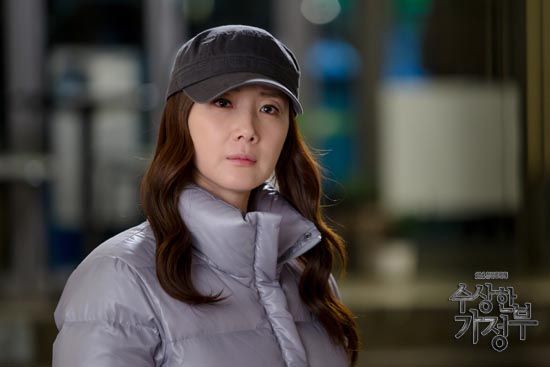
Suspicious Housekeeper snuck up on me, but once I got a taste of its darkly dry tone, I was intrigued. It wasn’t a straight-up melodrama, nor was it black comedy or outright mystery, though it had those elements. It was both coolly detached and heartwarming, and the line it walked between those was what gave it its unique atmosphere.
At the center of the story was Choi Ji-woo as the suspicious housekeeper, whose robotic demeanor and superhuman competence roused curiosity—who was this woman, and what was her story? Was she even human? Were we going to get paranormal explanations, or were we dealing strictly in the real, material world?
It’s this angle that gave the drama its fresh feel, because the steadfastly unemotional housekeeper provided a mystery we were eager to unveil. She also presented the ideal foil for the family she came to work for, her uber-efficiency and no-nonsense personality a stark contrast to their messy, confused, emotional tribulations. The story slowly grew out of that initial coldness as the family bonded and rebounded from its earlier setbacks, but even then the show retained its cool, slightly eerie tone, which kept it from veering too sappy. That was a welcome approach (I enjoyed a drama dealing in subdued emotions for once), though I could see the potential for frustration over its constantly even-keel tone.
I’d argue that the drama could have been even more compelling had they played more with its sardonic streak and dry sense of humor, because Bok-neyo was a fascinating new type of character for dramaland. Frankly I love that Choi Ji-woo took on a role like this after such a long run dominating as a melo queen—she had a wonderful handle on her character’s trajectory, playing the repressed emotion and glimmers of feeling with carefully calibrated control. She never fully lost her robotic mannerisms or melted into a warm, inviting character, but we were able to see, gradually, past the outer layer to the person underneath.
The drama did veer a bit extreme once it brought in the housekeeper’s past demons, and the tone threatened to tip into melodramatic waters. It was to the drama’s benefit that it maintained its cool undertone despite that shift, to temper what could have become makjang excess.
The housekeeper wasn’t a mere deux ex machina, either, and found herself unexpectedly the target of others’ helping hands, a strange position for somebody who’s spent so much time being the efficient helper. I didn’t want to see a mystical know-it-all swoop in to fix problems and put a broken family back together, because then she’s just playing god, and that’s not interesting. I appreciated that her presence spurred the family toward understanding, but once they were on back on solid ground, they took it upon themselves to help her right back, however much she resisted that interference. Healing is a two-way street, don’t ya know, even for supernannies and robot-genius housekeepers.
Flower Boy Next Door
Raise your glass of: A hot toddy, warm and sleepy.
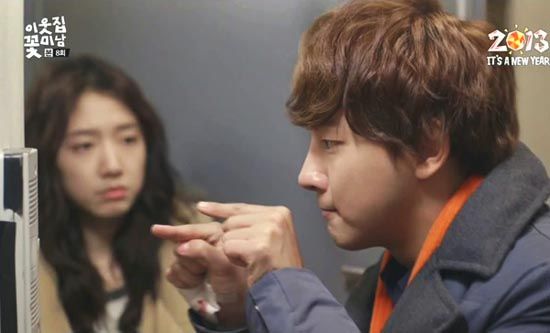
Flower Boy Next Door OST – “I Want To Date” sung by Yoon Shi-yoon [ Download ]
Audio clip: Adobe Flash Player (version 9 or above) is required to play this audio clip. Download the latest version here. You also need to have JavaScript enabled in your browser.
The Flower Boy series, despite its frivolous name, had exceeded my expectations with its first two series (Flower Boy Ramyun Shop and Shut Up: Flower Boy Band), so I was in for the third installment automatically. And while it shared some traits in common with the other dramas, this franchise has managed to successfully build a brand that still allows its shows to have their own distinct personalities.
Flower Boy Next Door was slightly moodier and more introspective than its premise had led us to expect, less about comedic neighborly hijinks and more about two lonely souls connecting. The show felt appropriately timed to deliver a dose of warmth in the winter television season, a little darkly shaded but without dolor.
Ultimately, the drama was both more and less than I wanted it to be. Starting off strong with a strong dash of quirk, the drama built up a lovely rapport between its intriguingly wounded heroine and the chatterbox hero, two characters who seemed at complete odds and yet found kindred spirits in each other. Though it initially seemed the hero was trying to draw the heroine out into the world for her own good, as their connection grew it became evident that the healing flowed in both directions. More than romance or even friendship, Flower Boy Next Door was a story of communication, told through characters who were simultaneously hyperconnected to their surrounding worlds (through the internet, their gadgets, and their views into each others’ personal spaces) and completely disconnected (by shutting down the pathways of communication). As the characters worked to bridge that divide, the series provided insights via the heroine’s narration that were eloquent and often poetic.
It’s a shame, then, that the latter portion of the drama fell back on cheap conflicts arising from external sources, taking a step backwards in the name of unnecessary angst that was a disservice to the character growth we’d witnessed thus far. The show’s forte had hitherto been its internal developments and exploration of the characters psyches, so to dump a last-ditch separation in their laps felt weak and dissatisfying. An unfortunate misstep for a drama that had begun so strongly. At least it gave us Enrique Panda, one of the year’s more winning and memorable characters.
Monstar
Raise your glass of: Bitters. Because it’s bitter.
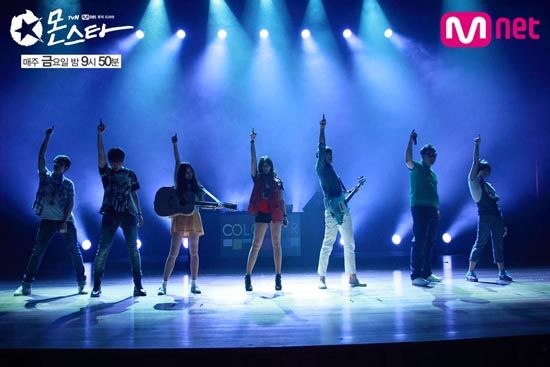
When Monstar premiered, I watched with a sense of growing excitement, feeling the potential to be hook-line-and-sinkered by this youthful melo about a band of misfits grudgingly coming together to find friendships, and maybe also themselves. The series was marked by a looser format than other dramas, its slot on cable music station Mnet allowing for something of an experimental vibe—it was fresh, thoughtful, a little meandering, and peppered with musical numbers that were thematically relevant as well as just plain well-done.
Because of the languid pace, the drama took a little getting used to, but there were quirky and compelling characters (in particular Ha Yeon-soo’s heroine, delightfully 4-D and left-of-center) and loads of potential for complex relationship developments: the idol star being flustered by the strange girl who has no idea who he is, the perfect class president jumping from the winners circle to the misfits, the signs of past friendships now broken. The drama used music in a few clever ways, such as reviving bygone hits and dusting them off with modern interpretations. Some unfolded as fantasy sequences, with the glossy imagined performances reflecting a character’s daydreams or hopes for future developments. Yet others acted as musical soliloquies, fueled by feeling, such as the bullying victim singing defiantly in the face of his tormentor.
Alas, the show started to lose its way, fizzling in earnest once the big showdown took place. Or perhaps it never had a planned arc to begin with, and once the sing-off had come and gone, there was nothing left to fill that space. The day I realized the show wasn’t going to fulfill all its wonderful promise was a disappointing one, because I could just see the flashes of specialness scattered here and there. But those grew sparser and sparser, and the plot ambled along like a wanderer without a destination, pausing in places to drop in musical numbers that were becoming increasingly irrelevant.
If Monstar had at least resolved relationship issues in the end, I would have been content to overlook the absence of a plot. But even here the show didn’t appear to know how to make up its mind how to leave the characters, and so we just sort of… left… and they went on doing their thing. There’s slice of life and there’s pointless, and I’m not convinced Monstar fell on the happy side of that divide. The beat we ended on wasn’t so much bittersweet as it was downright bitter, a taste that lingers and mars my enthusiasm for the first half of the show. It was rather the opposite of fanservice, leaving us dangling without a definitive ending. How dismaying, to be wrapped up in somebody’s storytelling and then come to a point where it cuts out without completing its thought or—
Dating Agency Cyrano
Raise your glass of: An appletini. Liquid candy.
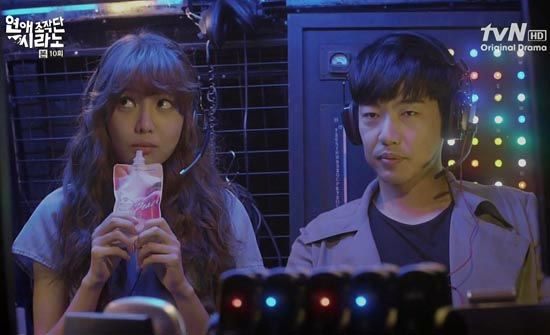
When you’re talking romantic comedy, light and cute is pretty much the main point. In that respect Dating Agency Cyrano achieved that goal, characterized by a lightness of spirit and a consistency of tone that made for a breezy, good-natured watch. Its case-of-the-week format was an efficient way to demonstrate the premise of the drama—that love could be nurtured by helping people initiate a connection—and the variety of personalities in the agency’s clientele offered a range of stories. Despite some hints of a more ominous turn, by and large Cyrano was a cheerful show, populated by good folk whose warm rapport brought a smile to my face.
Even so, there are limits to light and cute, and going too far can be just as much a detractor than not getting there at all. The drama that overdoes the lightness becomes too surface, too lacking in emotional heft, and such was the case for Cyrano. The cases were often interesting, and the drama did a good job mixing up the strategies employed to nurture the spark of interest into something more, but there was a slickness to the proceedings that kept it from engaging the feelings. I understood that the hero was traveling a trajectory from being emotionally shut off to opening his heart, for instance, but the developments frequently felt like a plot necessity, not a natural development of the character.
This translated into a romance that was cute but not fundamentally believable. So while the romance worked narratively, the actors felt like stand-ins for an idea more than two people in love, and my feelings remained disengaged. That’s not a dealbreaker, since not all dramas have to break your heart. You don’t want to go around giving that power to every drama that comes your way, do you?
Good Doctor
Raise your glass of: Mudslide, the Kit-Kat of cocktails.
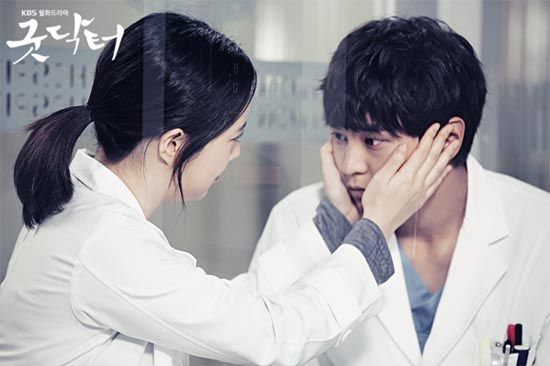
I can see why Good Doctor became a hit drama: It had a simple, straightforward premise, a heartwarming story structure, and an underdog played by a much-loved young actor (Joo-won). It’s sort of the Kit-Kat of dramas, easily understood and good for instant gratification, though there’s not much underneath the chocolate coating.
What you see is what you get with Good Doctor, which painted its conflicts in black and white, with oversimplified villains and conflicts that often turned preachy—our team of doctors is good. Anybody who interferes, for whatever reason (say, bureaucracy or the law) is wrong and therefore the enemy of the greater good. In making our core team of docs sufficiently good, the drama then pushed opposing forces into the land of cartoon villainy.
For instance, the drama had opportunities to delve into some interesting issues of medical ethics, particularly when our doctors kept breaking rank, disobeying orders to care for the patient in the way they thought best. But what if something bad happened, instead of the rebel doc turning out to be right and saving the day? How could somebody like our autistic doctor actually survive within a hospital bureaucracy? And yet, the drama always chose the easy way out, rewarding the rogue doctors for being correct, which seems to me a dangerous portrayal. As a result, Good Doctor also did away with any opportunities to deal with medical questions with any sort of nuance.
Joo-won’s performance as an autistic doctor was lauded, and you certainly see Joo-won putting his whole body and mind into the portrayal, which is one thing we have come to expect of him. On the other hand, it made for a one-man show, and none of the other doctors were given anywhere near that level of development. Mostly they were there to antagonize and then support our wonder doc, as the story dictated. What we got was feel-good stories that always worked out for the better, so overall my memory of watching Good Doctor was that it was a warm, simple drama with a cutesy sense of humor. Not really big on substance, it at least supplied a reliable dose of instant gratification.
Mi-rae’s Choice
Raise your glass of: Gin and tonic, but the bartender forgot the gin. A little gutless and sobering.
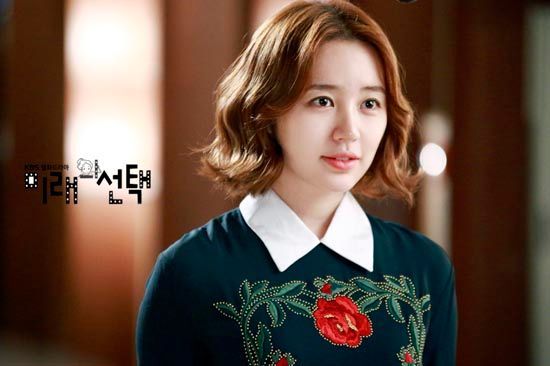
Mi-rae’s Choice (aka Marry Him If You Dare) was a late entry into the time-traveler genre, but while that was a pivotal part of the premise—the heroine tries to convince her younger self against a marriage that would make her unhappy—the drama wasn’t really much of a time travel story at all. That was both a good thing and a bad thing, because it employed the conceit in a different way than other dramas had (so, points for freshness), but never really had a handle on its own mechanics (minus points for muddled rules).
The drama started off promising and won me over with its refreshing tone, and I have a great appreciation for any show that can built a convincing conflict while letting its characters remain fundamentally decent people. This was a story of likable people up against a dramatic circumstance (for instance, a rewritten Fate), with the conflict coming from the inherent drama of human emotions and life choices. As an added bonus, it was a fun touch to make the one quasi-antagonistic character an obstacle not from evil intent but sheer stupidity (by which I mean Miranda, the grandma CEO with the terrible business decisions).
A promising message emerged midway through the drama’s run, as heroine Mi-rae struggled with her desires versus her knowledge of what was supposed to be best for her, reminding us that the future doesn’t define our choices. Our choices are what create our futures, and therefore, Mi-rae wasn’t quite as caged in by her future Fate as she was worried she was. Yet for some curious reason, the drama refused to move forward with its story, and for a long while it spun its wheels in place, letting an unresolved love triangle stagnate there with no momentum. How could you build an entire drama around a choice, and the withhold from us that choice? Ironically or not, the drama was sunk not by picking the wrong option but by its own indecision.
Who Are You
Raise your glass of: Lite beer. Lacks body. (Har har.)
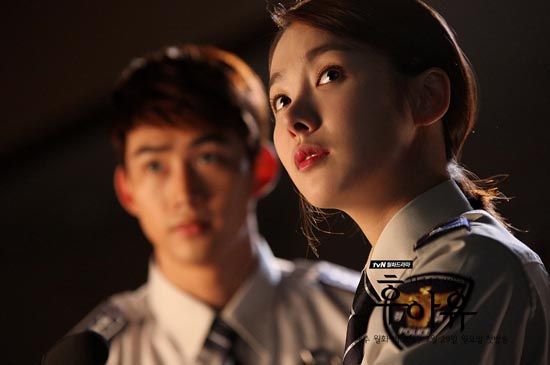
Ghost procedural Who Are You was a bit of a cold watch, and I don’t attribute that to its paranormal element. In fact, it was early on when the drama was incorporating a chillier horror vibe that the tone was most interesting, with the spookiness of the ghosts fueling the mystery of the heroine’s connection to the ghost world and her lost love.
The drama soon smoothed out into a romance melo, which should have drawn us; the conflict was an inherently heart-tugging one, with her being unable to move past her dead fiancé, whom she can still see lingering around her in ghost form. It should have been more of a conflict as she formed an attachment to a new love interest who was, at the least, alive and in the here and now… yet all I could do was lament the fact that the dead guy had to be dead. Maybe the puppy-dog cuteness of Taecyeon couldn’t compete with the soulful tragedy of dead Kim Jae-wook, or maybe Kim Jae-wook just really needs a role where he gets to speak. In any case, the drama moved away from spooks and settled into something more mundane, and there was no reviving that early spark of interest.
Furthermore, the focus to the new love interest came hand in hand with a shift toward police procedural stories, which, yawn. Not to mention the show working in a bumbling-cops vibe that gave the proceedings a distinctly jokey air—a jarring contrast to the tragic lovers-separated-by-death storyline unfolding alongside it. (They take a team of cops… to a cop retreat… and have to call the cops for help.) On top of that, Who Are You took the standard Ghost Whisperer approach to its ghost cases of the week, which resolved in predictable ways and stirred little emotional connection with us.
Ghosts in dramaland are not a new conceit, so it’s possible the producers felt no need to explain the paranormal rules governing their inclusion in the story. Even so, a drama that raises plot points that don’t exist in our natural world bears the responsibility of explaining its premise. People gained, lost, and gained ghost-seeing skills without clear reasoning, and once it became clear the show wasn’t going to bother to have an explanation, I couldn’t be persuaded to care either.
DRINK TO DULL THE PAIN
You’re the Best, Lee Soon-shin
Raise your glass of: Box wine. At a certain point you’re just trying to finish it off.
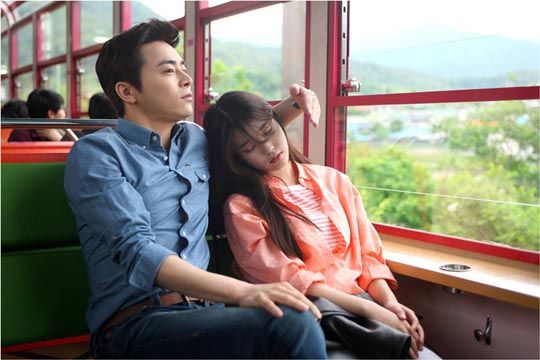
You’re the Best, Lee Soon-shin – “완전 사랑해요” (I totally love you) sung by Jo Jung-seok [ Download ]
Audio clip: Adobe Flash Player (version 9 or above) is required to play this audio clip. Download the latest version here. You also need to have JavaScript enabled in your browser.
You’re the Best, Lee Soon-shin had all the makings of a decent, perhaps even strong, family drama: a likable heroine, an adorable lead romance, an underdog trajectory, appealing side romances, a birth secret to add conflict, and solid performers in the cast. And from time to time those elements came together in just the right combination, bringing a smile to our faces with the heartwarming, feel-good developments. Sadly for us, however, it was more often that Soon-shin focused on all the wrong things to prove that even with good ingredients, mixing them together in all the wrong proportions will still yield a failed recipe.
Family dramas are often tonal hodgepodge by nature, alternating between story threads to keep the overall pace quick; light plots temper the dramatic melo turns, and multiple romances will develop at different rates so that there’s always somebody to carry this week’s episode. Done well, this formula can be quite nifty: The weightier elements are always present as a source of conflict, but can get set aside periodically so as to not drag down the whole production.
Of course, Soon-shin did it all backward by putting the romance on the back burner in favor of the makjang-y birth secret storyline, which soon turned the angst tedious. (Is birth secret angst ever not tedious?) Birth Mom was a brat, Adoptive Mom was a mope, and Grandma was a pill—why did we have to focus on these characters when we had such a bevy of fun, boisterous, likable folks just waiting for their turn in the spotlight?
On the upside, the drama proved to be a solid leading turn for newcomer IU, who put in a strong showing as the mostly plucky heroine, and her romance with Jo Jung-seok was seriously adorable when it was allowed to shine (which was less often than I wanted). And while Jung Woo is currently enjoying his star turn for Answer Me 1994, it’s Soon-shin we can thank for giving him exposure to mainstream audiences as a small background character who stole our hearts and every scene he was in. All hail the Bread Man.
Despite the disappointments, Soon-shin wasn’t a bad family drama, just a standard entry into the weekend makjang that makes you wonder why this is such a popular category, except that it’s exactly these kinds of shows that get popular: There’s just enough to like about it that you tune in for what you hate about it anyway. Aren’t we drama-watchers a perverse bunch?
King’s Family
Raise your glass of: Prison wine. You’re in prison, but at least you have wine.
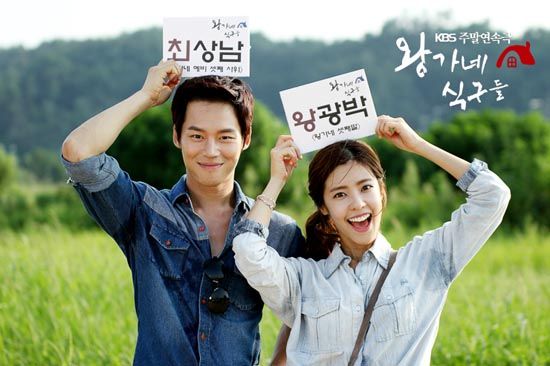
King’s Family (aka Wang Family) is a strange breed of makjang, but it’s not necessarily a bad one. Or should I say an unwelcome one—because the drama is, in fact, some kind of terrible. It’s off-the-rails absurd with its story logic and there is nary a subtle bone in the drama’s body. But it’s not makjang in the sense of provoking you to mad rage at the characters’ misdeeds, or the kind that rips your heart out until you just want to die. It’s entertaining makjang—extreme people behaving in extreme ways, whose outrageous antics you can either yell at or laugh at. I choose to laugh.
King’s Family is not a drama that requires you to puzzle out how this world or its characters operate. That would mean there’s some sense to be made in the first place. On the other hand entirely, this is a drama you watch as though examining aliens in their native habitat through an observation window, understanding that there is some fundamental logic driving these people that defies human emotion.
The premise is no different from every other weekend family drama to grace the airwaves since the beginning of K-dramas: There’s a multi-generation family at the center, and through the sprawling network of relationships the drama explores contemporary issues of marriage, dating, career, family, and the like. What makes King’s Family so incomprehensible is the way these parts have been woven together, which is to say with all the skill of a baboon knitting while drunk. One bad twitch and somebody’s bound to lose an eye. Somebody take away his prison wine.
Take, for instance, the wife who is proud of the fact that she has no marketable skills and is an incompetent mother (it’s her excuse not to parent). There’s the self-sufficient breadwinner wife who finds out her loser husband has a girlfriend—and begs him not to divorce her, taking the blame for driving him away. And there’s the father who refuses to let his son marry his beloved, and thus organizes a Daughter-in-Law Audition (’cause he saw a show on the teevee, yunno), in which the forbidden beloved is allowed to compete. The mere inclusion of such puzzling characters is not what makes the drama so strange; it’s that everybody in this world accepts this rationale as sensical. And so we are left to shrug, figuring that WTF is just a theme inherent to the show.
King’s Family is just past its halfway point so judgment is still incomplete, but we have certainly seen enough to know that crazy makjang is its modus operandi, and also the reason for its ever-climbing ratings. These things are directly correlative, so expect the whackadoo antics to continue as the drama aims to break the 40% ratings mark. I won’t be following anybody’s demented logic, but I’ll be enjoying the daftness. Pass the prison wine.
Basketball
Raise your glass of: Robitussin. It’ll do the trick, for all the wrong reasons.
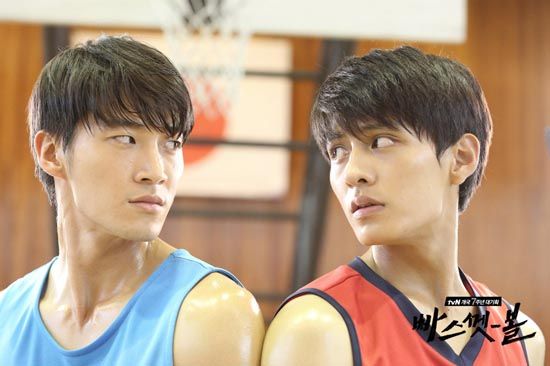
I was SO looking forward to Basketball, y’all have no idea. I wasn’t even expecting it to be another Gaksital, which is the obvious point of comparison for every Occupation drama going forward; my hopes were stirred entirely by the premise and the richness of the historical backdrop the show was invoking as its main storyline. Basketball in the 1940s! Poor boy makes good! The rivalry with the rich basketball star! THE OLYMPICS.
Such a promising premise, such a shame it got weighed down by plodding execution. There are a number of issues with Basketball and you can’t quite pin its failure on one factor alone, but I feel like it lost its way early on by fixating on the wrong things. This is not a case of trying to pad out a thin story with any plot you can get your hands on; it’s a world crammed with so much story material that editing those elements down into a tight, compelling narrative is as crucial as thinking up that material in the first place. It feels as though the producers were so excited to depict everything that they couldn’t kill their babies (er, that is to say, let go of things they considered precious for the benefit of the whole). So instead of picking a direction, they continued to go in all directions. This… does not work.
I wondered at the number of episodes that were passing by without getting anywhere near what I considered the core premise of the show: Korea’s liberation, the united Olympics basketball team, the division of the peninsula. Why so much attention on a love triangle that nobody really cared about? The cutdown from 24 episodes to 18 seems to have taken the wind out of the drama’s sails, but let’s be honest, the show was floundering long before the cut was decided.
The characters are an odd bunch as well, because I’ve always felt that Chi-ho (Jung Dong-hyun) was getting the better hero’s arc, while basketball phenom San (Do Ji-han) was getting short shrift by being moony-eyed over his honey. She was badly written and even more badly acted, and his infatuation with her made me lose respect for his character just by proxy. That’s a sad story.
It feels as though Basketball got caught up trying to be more important than it is, and I can understand the compulsion to do that—the Occupation isn’t something you want to gloss over with careless or inaccurate writing, and by all reports the drama has been praised for its meticulously researched historical details. But in doing so it lost sight of the story it should have been telling, and therefore we had little to connect with. It isn’t an awful drama by any means, but it hasn’t made it a priority to be very entertaining. And who wants their entertainment to be dull and serious?
Heirs
Raise your glass of: The fanciest champagne cocktail money can buy, which you can’t drink because you spilled it on your ugly sweater collection. You win some, you lose some.
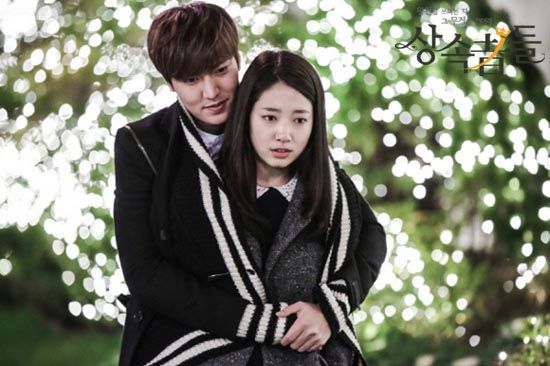
I wasn’t so ambitious as to expect Heirs to be the best high school drama ever, but I did have the hope that it would at least be entertaining, of the Boys Before Flowers variety—despite character inconsistencies or outrageous twists or frustrating relationship angst, that show was at least good soapy fun. Heirs’ writer, as much as she can drive me nuts, has always demonstrated a talent for glib dialogue and witty banter, which seemed exactly the sort of thing to drive a glossy teen romance fantasy set in the world of the uber-rich.
There’s still a week left to the show but it seems fair to say that Heirs has fallen short of that expectation, having misstepped on a few levels. First of all, for being a modern show featuring a new generation of rising stars, the story is remarkably old-fashioned, and not in a clever way. I was hoping for a fresh twist on the ole chaebol-Candy romance, because in this day and age how do you get away with that trope without twisting it somehow? Yet nothing we’ve been given is something we haven’t already seen in every stereotypical chaebol drama of the past decade.
The cast is, by and large, populated with solid actors who have been carrying the drama more than the writing supports. The drama owes much of its popularity to the one-two punch of Lee Min-ho and Kim Woo-bin, who certainly give their characters a charm that the writing does not. I will contend that both man-boys need serious lessons on how to not be a neanderthal with women, but I can only imagine how much more horrible these characters would be in the hands of less talented (or at least less charismatic) actors. Then again, maybe the writer would finally be taken to task for her awful characterizations, so maybe that would have had its own brand of silver lining.
There are lots of other little flaws dotting the drama that we could point to, but my umbrella complaint is that Heirs takes itself entirely too seriously. You can’t call yourself the Korean Gossip Girl and then be humorless about it. There are a fair number of witty one-liners peppered throughout, but by and large this is a drama full of dialogue that goes nowhere, without a story actually holding it up. You can put icing on a cake, but nobody wants to eat a cake made only of icing, and that’s what we’ve got here. It may boast a pretty surface but it’s ultimately empty of content, a drama made almost entirely of filler.
Secret
Raise your glass of: The vodka you chase down your pills with. Dangerous and loopy.
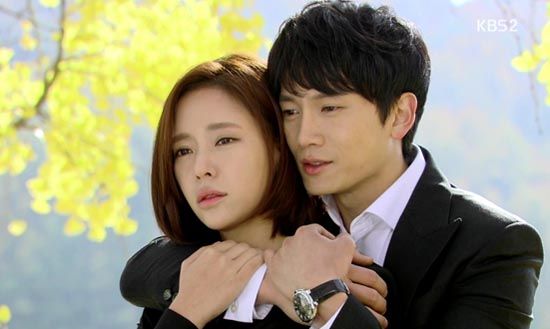
Secret OST – “폭풍의 언덕” (Wuthering heights) sung by Ji Sung [ Download ]
Audio clip: Adobe Flash Player (version 9 or above) is required to play this audio clip. Download the latest version here. You also need to have JavaScript enabled in your browser.
What made Secret one of the miniseries hits of the year was the wild ride of emotion it took its audience along on, presented via characters acting in extreme, intense, and yes, sometimes psychotic ways. The characters didn’t always make the most sense, but the show swept you up in its fast-moving dramatic excesses so that you didn’t always care about the flaws. What mattered more was the emotional payoff.
At its best Secret was a compulsively watchable experience, of the kind that keeps you reaching for more popcorn with eyes glued to the screen. At its worst it was a parade of single-entendre histrionics engineered to blatantly push your buttons. That isn’t necessarily a failing, in light of the fact that Secret never made any bones about aspiring to nuance or even depth. Its in-your-face melodrama was a large factor in its raw appeal, drawing viewers into the plight of the heroine who got beaten down again and again by those who used and tormented her. And judging from the reactions of fans, the drama succeeded in connecting with viewers and sparking a fervent emotional response.
The series employed an unusual dynamic with its main romance, and for better or for worse (I’d argue worse), that fierce connection hooked fans in with its intensity—even though one would be hard-pressed to find anything healthy about it. The “hero” (a word we’d have to apply with comical looseness) frequently made me uncomfortable with his blazing hatred of the heroine, whom he stalked, threatened, and abused on the way to falling deep into passionate love with her, and sometimes even afterward. Lest you think I exaggerate, a key moment in his path to love is his anguished realization, “Why does it hurt me when I hit her?”
That’s no indictment on Ji Sung, who was undoubtedly compelling in the role; it’s his deranged manchild character I could not connect with, he who wielded power like a destructive toy. Not that Hwang Jung-eum’s victimized heroine was much better, playing the martyr role to the hilt and ultimately equating love with pain. (This is a connection made explicitly: “Thinking of someone and feeling pain—that’s love too. You brought me a lot… truly a lot… so much pain.” So many facepalms.)
But I will give Secret this: It was entertaining, addictive, and paced with such speed that it was able to kept its entertainment factor high. These people were cracked, but there was an undeniable pull to keep watching to see what they’d do next. Would they destroy each other? Band together as allies against the other enemy? Decide to let love do its magical healing thing? Those questions propelled the drama through to the end, helping to make even the messiest of plot turns palatable because the narrative swept you up with its momentum. I may not have liked anybody, but I sure wanted to see what became of them. Sort of like rubbernecking a trainwreck.
Nail Shop Paris
Raise your glass of: Bathtub moonshine. Throw everything together, toss it down, and hope your stomach lining survives the experience.
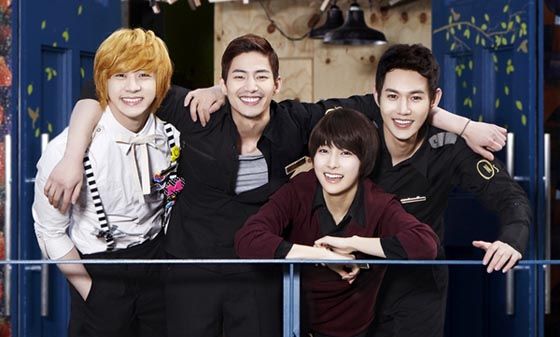
Nail Shop Paris is one-half of a good idea, mixed with about four or five bad ones. What an odd, jumbled, possibly straight-up awful drama, featuring a mishmash of tones and way too many genres to make for any sort of coherent plotting. It had crossdressing hijinks, flower boys, procedural therapy stories, nail art, love triangles, and gumihos, all rolled into one very strange mix that tried to be everything at once. There is only one reason it was saved from dropping into the category below this one, and while that was merely one positive in a sea of negatives, it was nevertheless enough: Song Jae-rim.
First off, the big discovery: Song Jae-rim can act? I have seen him in four dramas and it wasn’t until this one that I realized he was much better than the pointless sidekick he played in Flower Boy Ramyun Shop, the slightly less pointless but nevertheless inconsequential sidekick he played in The Moon That Embraces the Sun, and the silent assassin in Two Weeks (which he did after Nail Shop but which I saw first). Perhaps it wasn’t until he was dropped into an entire cast of bad actors that I could see the full extent of his ability, in that he stuck out like a sore thumb for not sucking.
It wasn’t even that his character was all that special—it’s that he took a common role in a subpar drama and acted with commitment, and as a result he got me hooked to this terrible, terrible show. Damn you, Song Jae-rim! Because aside from him, the show is mostly crazy: In addition to the Coffee Prince-lite setup, we were dealing with fantasy interstitial sequences, a strange fixation with gumihos, and a team of nail artists who took as their mission the healing of strangers’ emotional pain via some inappropriate meddling in their personal lives.
Nail Shop Paris did manage to pull out one big surprise, which for me was its saving grace. (This next point cannot be made without spoiling the ending, so skip this paragraph if you’re spoiler-phobic.) I’d long resigned myself to another suffering second lead ending—Girl has crush on Pretty Boy, Second Lead falls for Girl, Second Lead suffers while being the silent pillar of support. We all know how this ends, right? So it was to my great surprise that the show didn’t insist on pairing anemic lead actress (KARA’s Park Gyuri) with the dull-as-dirt love interest she’d been pining over (Jeon Ji-hoo), subverting expectation to go with the underdog. I cheered out loud and then felt shame, but also a wave happiness for Song Jae-rim. So the show somehow got me to care about it after all.
Nail Shop Paris may have been a messily conceived procedural-paranormal-mystery-romance drama, and I really can’t recommend it to anybody as a good example of anything other than How Not To Mix Genres. But you know, it taught me that some silver linings can make up for a lot, and that’s a lesson worth learning.
DRINK TO FORGET
Level 7 Civil Servant
Raise your glass of: A bucket of cheap champagne. Leaves you with a pounding hangover and a puddle of regrets.
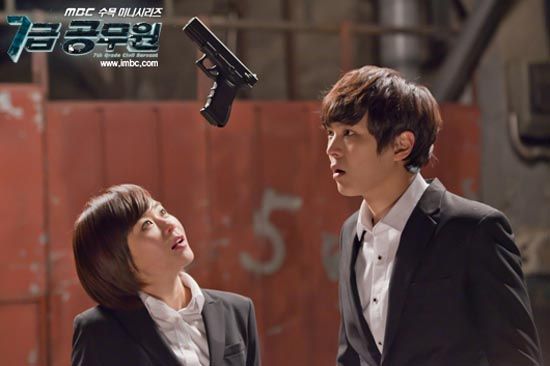
Yeaaaah, that picture pretty much sums up the Level 7 Civil Servant experience. Two lovebirds, flying weaponry, general spying incompetence, a look of confusion (on our faces).
The funny (or perhaps sad) thing is, there was no reason this drama couldn’t have worked in theory. When the movie version was first announced, I thought it would make a fantastic drama series, and after I’d watched the film—which had some ridiculous plot moments but was largely rollicking fun—I could have easily hopped aboard to watch fifteen more episodes.
But there’s no such thing as a sure thing, and even proven hits can be ruined with crazy writing and bad casting. Was there ever a more mismatched pairing? Even in the worst cases, I can usually put aside my misgivings to accept the drama’s reality of the coupling—but there was no saving Joo-won and Choi Kang-hee, who took non-chemistry to new depths. This awkwardness had little to do with age—I’ve been swayed by bigger age gaps—and everything to do with their aunt-nephew vibe, and once a rom-com fails in the romantic chemistry department you’re fighting a losing battle, even if everything else is working.
Of course, in Level 7′s case, everything else was failing in equal measure, from the juvenile logic driving the characters to the flimsy bad guy revenge plot to the incredible fail that was the NIS. Secret agents giggling over misfiring their guns, supposed professionals routinely ignoring their work (upholding national security) to angst over their love lives, and bad guys who just really needed a hug to make it all better—that was the thrust of the show. It was pretty much a universal fail, and you wanted to tell all parties involved that they were better than this. Well, perhaps except the writer, who should never be allowed to write women characters ever.
To find a silver lining in the mess, the experience of covering Level 7 Civil Servant was unexpectedly much more positive than the show itself. Without it, we wouldn’t have gotten the chance to try our hand at artistic expression via stick figures, or whip up recaps like this one. Not everything was a downside, although I think the more pertinent message to come out of our Level 7 experience is that our DB community can be a pretty awesome place of support and good humor, and I’ll always look fondly upon that reminder.
RELATED POSTS
- 2013 Beanie Awards: Vote for your favorite dramas of the year
- 2012 Year In Review, Part 6: 2012 Editors’ Picks
- Santa presents: 12 Days of Christmas
- 2012 Year In Review, Part 5: Dramaland: The gift that keeps on giving (girlfriday’s review)
- 2012 Year In Review, Part 4: If I Could Turn Back Time (HeadsNo2’s review)
- 2012 Year In Review, Part 3: A Variety of Flavors in 2012 (gummimochi’s review)
- 2012 Year In Review, Part 2: Life Lessons from a Mixed Bag of Dramas (kaedejun’s review)
- 2012 Year In Review, Part 1: Something for everyone? (javabeans’ review)
- 2012 Beanie Awards: Vote for your favorite dramas of the year
Tags: 1 show to rule them all, Answer Me 1994, Basketball, Dating Agency Cyrano, featured, Flower Boy Next Door, Good Doctor, Heirs, I Hear Your Voice, King's Family, Level 7 Civil Servant, Mandate of Heaven, Master's Sun, Mi-rae's Choice, Monstar, Nail Shop Paris, Nine: Nine Time Travels, Secret, Suspicious Housekeeper, Two Weeks, Who Are You (tvN), year in review, year in review 2013, You're the Best Lee Soon-shin
![[Beanie Review] Light Shop](https://d263ao8qih4miy.cloudfront.net/wp-content/uploads/2024/12/LightShop_reviewb.jpg)
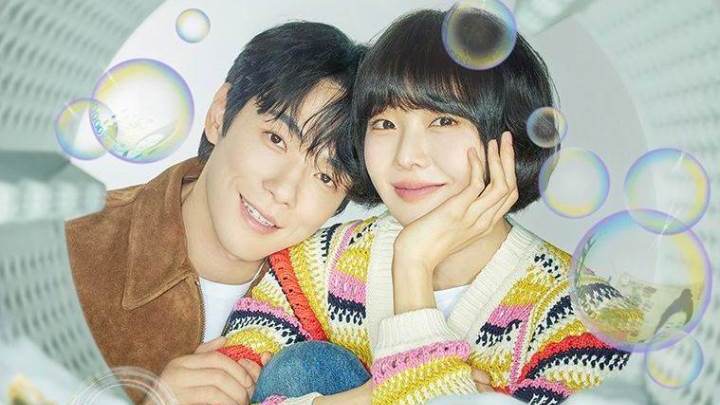







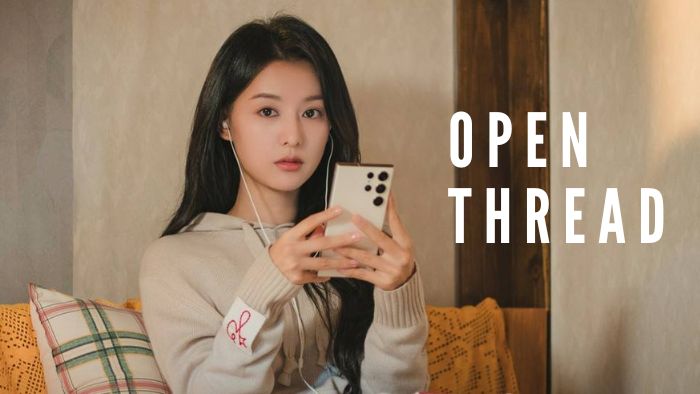
Required fields are marked *
Your email address will not be published. Required fields are marked *
151 kriza_09
December 20, 2013 at 12:12 PM
I think Heirs is a waste of a very interesting world setup. If only they had explored more on the inner struggle of these privileged hormonal teenagers trying to fit in their reality of family and company politics instead of focusing only on rich boy/poor girl romance high school romance. I wish the drama were more about how each character struggles to find his/her own way to bear the weight of his/her crown.
Plus, I would really love to watch a melodrama with Kim Won as the main character.
Required fields are marked *